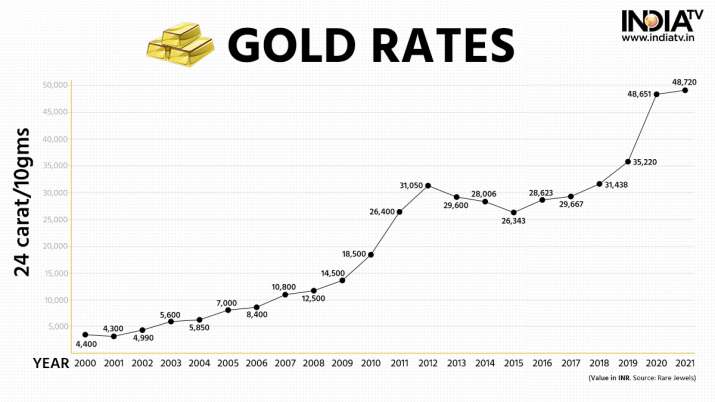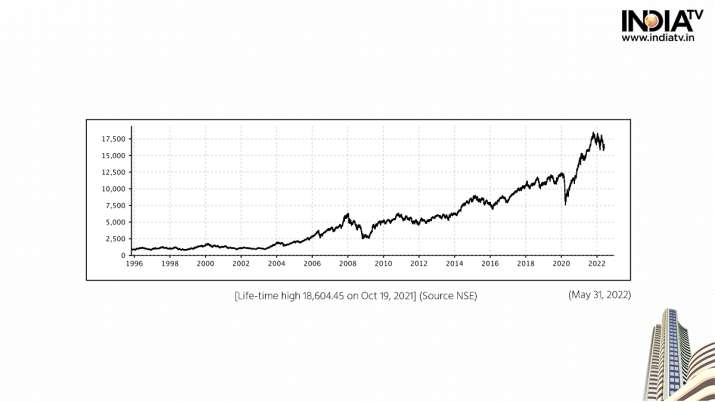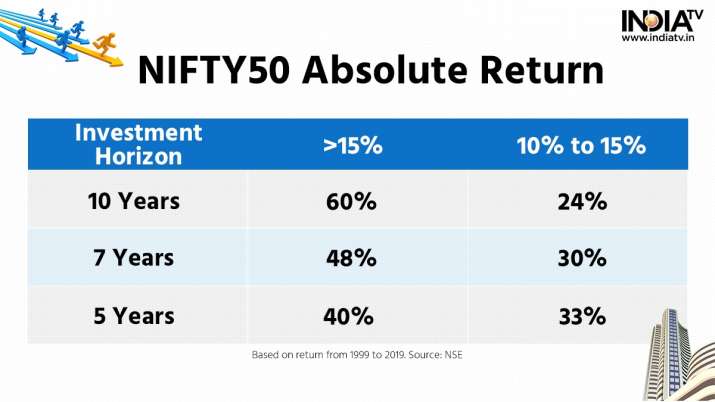Investment by hedging: A safe bet to save money amid skyrocketing inflation – EXPLAINED
Inflation, which is a natural occurrence in an economy, if remains above a particular level or say above the tolerance level for a long time, it can impact the value of savings. This ultimately will decrease the purchasing power of the money which a person saves from his/her hard-earned sum over a period of time. When you save money, it seems significant in today’s context. But that is not the goal. When you save, you keep in mind the rising prices of services or commodities of tomorrow. But that amount may not be significant so many years from now because of the rising prices. Therefore, it is suggested to give an additional cushion to your investment by hedging.
Mahesh Shukla, founder and CEO of PayMe India, explains that hedging is important to protect the purchasing power of your money. To hedge against inflation and protect the value of investments, investors often go for strategies to stay ready for a sudden decline in currency rate by cultivating asset classes that might give you a return to match or beat the prices in future. “Traditionally, the ideal way to hedge against inflation is to invest in assets that will either maintain their value during inflation or increase in value over time,” he said.
Effective strategies to hedge against inflation:
GOLD
Investment in gold is traditionally considered the best hedge against inflation. Its prices rally during a high inflationary economic scenario. However, there are counter arguments that gold is no longer a hedge against inflation but it certainly is a safe area for a steady gain during the time of crisis.
If you look at the returns gold has given in the last 10 years, it is phenomenal. The yellow metal has appreciated by 134 per cent in the last decade. On January 1, 2010, gold was being sold at the rate of Rs 16,650 per 10 grams. The value of the same on September 7, 2019, touched Rs 40,280.

Historical gold rate in India
Therefore, investment in gold could be considered a perfect alternative investment to hedge against inflation.
“Especially for Indian investors gold can be more of a currency hedge than an inflation hedge since the price of gold varies in accordance with the global prices and the rupee exchange rate rather than the prevailing inflation in the country,” Mahesh Shukla said.
Ravi Singh, vice president and head of Research Share India, said one of the most preferred assets to protect investment against inflation is gold. “Other commodities used as raw materials including oil, natural gas, industrial metals, wheat and corn also act as a natural hedge against inflation,” he said.
EQUITY
In an inflationary scenario usually, the bond market is struck more than the stock market. Hence, it is sensible to relocate a certain portion of the portfolio from bonds to equities. Most experts suggest that a 60-40 stock-bond equation is the safest and most conservative mix in an investment portfolio. Buying quality stocks that can pay a higher yield in long term could be a good decision.
Ravi Singh said that equities tend to do well in inflationary environments because corporate earnings also grow strong, especially in cyclical industries. Some sectors like energy, power, FMCG and pharma have always delivered good returns in such scenarios.
“Stocks grow over time as the company expands and they might pay dividends a return anywhere greater than the inflation rate will protect your decreasing value of money,” Manoj Dalmia, founder & director, Proficient Equities, said.
NIFTY50 PERFORMANCE
NIFTY50 index since its inception in November 1996 has delivered an annualized return of 12.2%, according to the exchange data published in the white paper dated July 2017.

NIFTY50 performance since inception
Based on daily rolling return analysis of NIFTY50 from 1999 to 2019, if a person investing in the index with an investment horizon of at least 5 years never suffered a loss. Over the last 10 years, the index has generated total returns of 15.98% per annum, according to the exchange data published in the white paper dated April 2019.
On a rolling return basis, the index has given return of more than 15 per cent per annum for 60 per cent of the times for a 10-year investment horizon. For a 7-year investment horizon, the index delivered an annualised return of more than 15 per cent per annum for 48 per cent of the times.

NIFTY50 absolute return
INTERNATIONAL EQUITY EXPOSURE
Having international exposure can be a very effective strategy during tough economic conditions like inflation. While many economies in the world are impacted due to the United States market indices, major economies like Italy, Australia and South Korea remain are least affected. Investing in stocks and bonds in such markets can provide investors with an opportunity to generate good returns.
“Two most effective and low cost ways to diversify investments internationally are exchange-traded funds (ETFs) and mutual funds,” Mahesh Shukla said.
REAL ESTATE
With the rate at which India is growing, real estate would be at the forefront. Private investment in the sector is increasing, owing to more transparency and returns. Investing in real estate, therefore, comes with multiple advantages. Similar to commodities, hard assets like real estate tend to increase even more in an inflationary environment.
Yuvraj S Rajan, director at Raiaskaran Group, said that inflation benefits real estate owners who make money from their rental properties, especially those in property sectors with short-term lease agreements like multi-family complexes because increasing housing prices translate into higher rent.
“Finally, because property values tend to rise steadily over time, real estate can be an inflation hedge. Most of the properties that hit rock bottom when the real estate bubble burst in 2008 were back to their pre-crash levels in less than a decade. Real estate investments can provide a steady income while keeping up with or outperforming inflation in terms of value,” he said.
In the last decade (2010-2019), property rates in major cities including the metroplis climbed by an average of 38 per cent, compared to a 52 per cent increase from 2000 to 2009. The average home price increased from Rs 2,490 per sq ft in 2000 to Rs 3,784 per sq ft in 2009. Likewise, the average property price in the top seven cities increased from Rs 4,063 per sq fo in 2010 to Rs 5,599 per sq ft in 2020.
Property prices in the MMR (Mumbai Metropolitan Region) increased by 33 per cent to Rs 10,610 per sq ft in 2020 from Rs 7,965 per sq ft in 2010. The same figure grew by 67 percent between 2000 and 2009, the greatest among all cities.
According to Raiaskaran Group, the country’s real estate sector is expected to touch $ 1 trillion-mark, up from $ 200 billion in 2021. It will account for 13 per cent of the country’s GDP.
Another feasible alternative is investing in real estate investment trusts (REITs) or companies which own and operate portfolios of commercial, residential and industrial properties, which can be bought and sold easily.
For all the latest Business News Click Here
For the latest news and updates, follow us on Google News.

